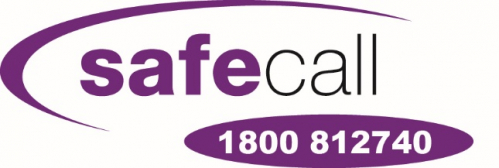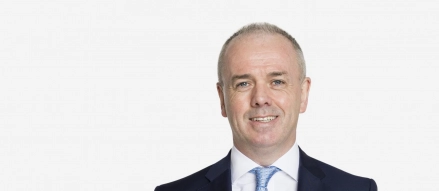Strong values have been at the heart of our organisation since its creation. One of our core values is integrity and our whistleblowing policy is fundamental to maintaining this integrity. In addition, it reinforces the value the firm places on our employees, partners and any individuals connected to us to be honest and respected members of their individual professions.
To ensure accountability and transparency it is important to have a mechanism that enables all individuals (including current and past employees or partners) to voice concerns when they discover information that they reasonably believe indicates serious malpractice or wrongdoing. Our whistleblowing policy provides a method of properly addressing these concerns while also offering protection from victimisation, harassment or disciplinary proceedings.
This policy has been designed in line with the terms of the Protected Disclosures Act 2014 and the subsequent Protected Disclosures (Amendment) Act 2022 (which transposed the EU Whistleblowing Directive into Irish law. The new protections commenced on 1st January 2023.
Who does this policy apply to?
The policy, and the protection it provides, applies to all partners and staff (both current and past), including those on permanent or fixed-term contracts, to agency staff, consultants and contractors, job applicants and to those on work experience.
What types of concerns are covered under this policy?
Whistleblowing is the confidential disclosure by an individual of any concern encountered in the workplace relating to a perceived risk, malpractice or wrongdoing. The firm considers examples of such wrongdoing or malpractice to include:
- General malpractice – such as immoral, illegal or unethical conduct (including where someone’s health & safety has been put in danger).
- Danger to the environment.
- Breach of any legal obligation.
- Negligence on the part of the firm.
- Gross misconduct.
- Potential infractions of the requirements in, or made under, the Central Bank and Financial Services Authority of Ireland Act 2003; the Pensions Act 1990; the Proceeds of Crime Act 2005.
- The Criminal Justice Acts 2010 to 2018 or any financial misconduct of any kind
- Any inference of bribery and corruption.
- Potential infractions of the firms independence policy.
- Potential infractions of audit (or other applicable) regulations.
- Potential infractions of the codes of conduct of all relevant professional institutions (including the Ethical Standard for Auditors (Ireland) 2020 and Professional Code of Ethics).
What types of concerns are not covered under this policy?
The below are not considered wrongdoing or malpractice:
- Workplace grievances which are exclusively personal
- Disputes with your employer about your contract
- Information that is disclosed in a legally privileged setting
The above lists are not exhaustive and other examples may exist. If you need help in reporting wrongdoing you can get free independent support from Transparency International Ireland which also provides support (in a range of languages including; Arabic, Polish, Romanian, Brazilian Portuguese, Lithuanian, Bulgarian, Russian, and Mandarin Chinese.
Protections under this policy
All staff members are protected from victimisation, harassment or disciplinary action as a result of any disclosure, where the disclosure is made in good faith and is not made maliciously or for personal gain. Where disclosures are made in the public interest, staff will have statutory protection in Ireland under the Protected Disclosures Act 2014 and the subsequent Protected Disclosures (Amendment) Act 2022.
Any disclosures will be investigated fully including interviews with all the witnesses and other parties involved.
The identity of the whistleblower will be protected at all stages in any internal matter. While the firm can provide internal anonymity, it cannot guarantee this will be retained if external legal action flows from the disclosure. The firm is not accountable for maintaining anonymity where the whistleblower has told others of the alleged misdemeanour.
Whilst the firm encourages whistleblowers to identify themselves, anonymous calls will nevertheless be taken seriously and investigated fully. However, the effectiveness of any whistleblowing inquiry may be limited where an individual chooses not to be identified.
Process for dealing with whistleblowing disclosures
Internal channels
Individuals may raise a concern through various channels:
- The partner in charge of their service line.
- The partner in charge of their office or region.
- If the matter is of a compliance nature, to the compliance director.
- If the matter relates to money laundering or bribery to the Money Laundering Reporting Officer, Lorcan Colclough.
- Concerns relating to an employment issue may be directed to the HR manager or HR director.
If these contacts are unavailable, or if the whistleblower is concerned about making a disclosure to any of the above, they may make a disclosure to:
All whistleblowing disclosures made to the parties above will be treated as confidential and will be reported to the head of human resources.
The whistleblower should make it clear that they are making their disclosure within the terms of the firm’s whistleblowing policy. This will ensure the recipient of the disclosure realises this and takes the necessary action to investigate the disclosure and to protect the whistleblower’s identity.
By mail
The Whistleblower can also make reports by mail. Postal reports (named or anonymous) should be sent to the head of human resources, Mazars, Harcourt Centre, Block 3, Harcourt Road, Dublin 2, D02 A339, Ireland. Reports should be marked private and confidential, with the reference ‘Whistleblowing’.
Whistleblowing hotline
Employees and external parties concerned about speaking to a member of staff can speak, in confidence, to an independent third party, Safecall. The Safecall service is available 24/7 365 days a year via the number below and allows you to speak to someone in your preferred language:
Alternatively, Safecall can be contacted via e-mail mazarsie@safecall.co.uk or the web www.safecall.co.uk/report
Recent policy amendments
Internal reporting channels
Records of all oral and written reports received will be maintained through the secure internal channels – HR department and external channels of Safecall in compliance with data protection regulations.
Introduction of strict timeframes
Receipt by the recipient of a Protected Disclosure will be acknowledged, in writing, to the reporting person, within 7 days and they will “diligently follow-up on disclosures” within 3 months (this can be extended to 6 months if duly justified). Feedback to the reporting person is required and will be provided within three months (with a possible extension to six months).
Feedback
Feedback means the provision to the reporting person or whistleblower of information on the action envisaged or taken as follow-up and on the grounds for such follow-up. Feedback will be provided not more than 3 months from the acknowledgment of receipt of the report and at intervals of 3 months until the case is closed. Feedback is provided within the constraints of maintaining confidentiality or observing legal restrictions generally, including who is handling the matter, if internal, how they can contact them and if further assistance required.
Possible outcomes after reporting a concern
There will be no adverse consequences for anyone who reports a whistleblowing concern.
The following actions may be taken after investigation of the concern:
- Disciplinary action (up to and including dismissal) against the wrongdoer dependent on the results of the investigation.
- No action if the allegation proves unfounded.
If the whistleblower feels that having exhausted all channels and that the matter still has not been properly investigated by the firm, there are various prescribed bodies with whom they can raise their concerns. Examples of these organisations are:
Record keeping
A central record of all whistleblowing allegations will be held by the ethics partner, who will report on the outcome of investigations to the national executive and to the firm’s independent non-executives.
Where a party wishes to make a complaint regarding our service, please contact our managing partner at:
Tom O'Brien
Telephone: +353 1 449 4400
Email: tjobrien@mazars.ie
Persons wishing to report a matter under whistleblowing regulations may contact our head of human resources at:
Liz Buckley
Telephone: +353 1 449 4432
Email: lbuckley@mazars.ie












